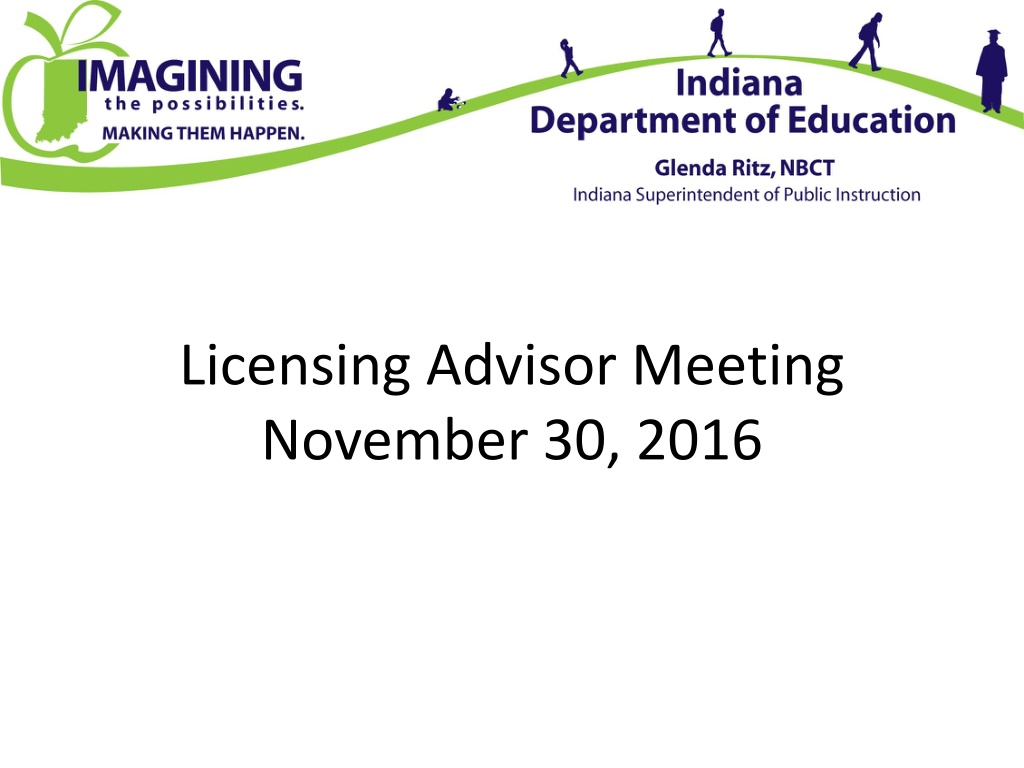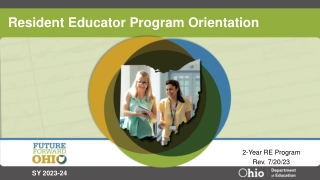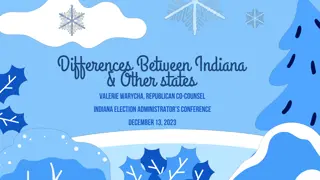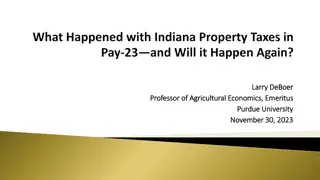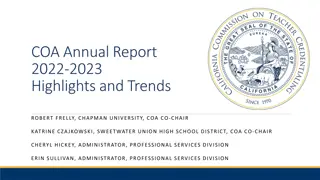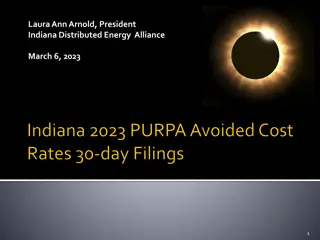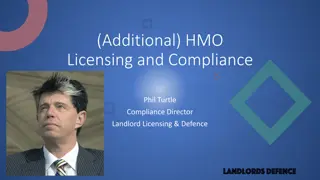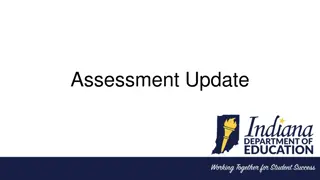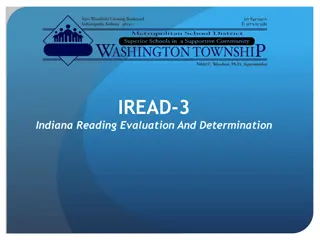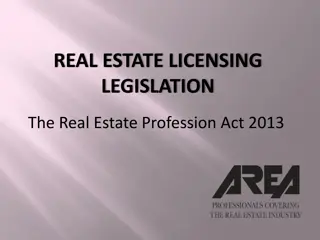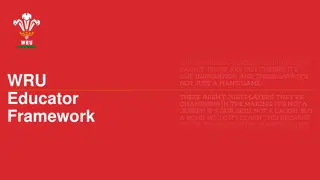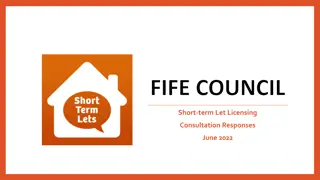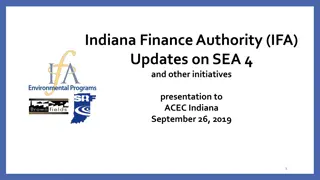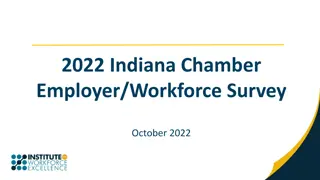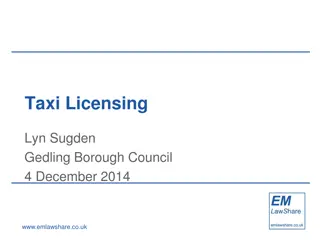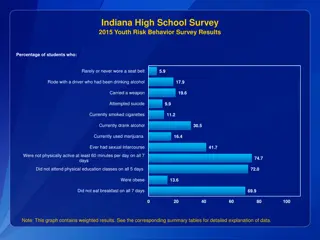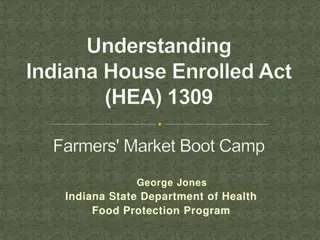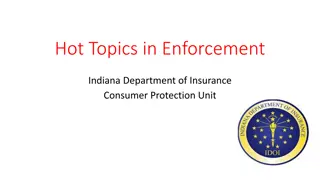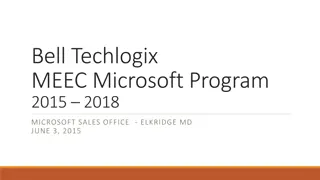Enhancing Educator Licensing Standards in Indiana
Our mission is to set and uphold high licensing standards for educators in Indiana's P-12 schools. By collaborating with higher education preparatory programs, we aim to ensure quality instruction through professional development and training. Responsibilities include verifying program completion, maintaining confidentiality, and processing licensure applications efficiently. Ethical conduct, integrity, and responsibility are emphasized for licensing advisors. Various programs, such as Teach for America and STEM initiatives, offer diverse pathways to educator licensure.
Download Presentation

Please find below an Image/Link to download the presentation.
The content on the website is provided AS IS for your information and personal use only. It may not be sold, licensed, or shared on other websites without obtaining consent from the author. Download presentation by click this link. If you encounter any issues during the download, it is possible that the publisher has removed the file from their server.
E N D
Presentation Transcript
Licensing Advisor Meeting November 30, 2016
Welcome! Introductions
Our mission is to establish and maintain high standards for licensing educators to work in Indiana s P-12 schools. In order to enhance the quality of learning that takes place in our schools, we must have qualified individuals preparing and delivering instruction to our students. Our division will accomplish this by working with higher education preparatory programs and incorporating a sound license program based on professional development activities and training. Our division will develop alternative certification programs to get the best and brightest in their field to instruct the students in our state. Our division will strive to work with optimal efficiency while providing outstanding customer service.
Important Roles and Responsibilities: Verifying program completion and licensure status of teacher candidates at their institution; Communicating licensure rules, requirements, and updates to teacher candidates; Maintaining confidentiality of sensitive data or information, such as candidate test scores, academic (transcript) information, Social Security numbers, etc.; Consulting with IDOE staff if unsure about process or procedure (never assume, always ask! Please!); Processing licensure applications using LVIS; Showing patience and understanding with all stakeholders as we all work together to do what is best for Indiana educators and students; Remembering we are all human and it is ok to ask us if unsure!
Licensing advisors process original license applications, licensure renewals (with some exceptions), licensure additions, and professionalization requests. All of this leads to a very important topic which must not be overlooked ethical conduct. What do we mean? - integrity - confidentiality - high professional and personal standards of conduct - responsibility for others
Traditional Programs - Traditional Undergraduate Alternative Programs - Transition to Teaching - Career Specialist Permit - Advanced Degree - Charter School Licensure - Workplace Specialist - STEM - Teach for America - Master of Arts in Teaching or MAT program for initial licensure
You probably are hearing a lot about testing and teacher standards. Indiana Educators are expected to meet content and pedagogical standards. Indiana Educator Preparation programs are expected to prepare educator to meet those standards. Future educators are expected to pass assessments which are based on those standards before they can be licensed/ Let s look at this another way
Educator Assessments (CORE and Pedagogical) Educator Preparation and Assessment Assessments specific to Indiana Indiana Educator Standards Alignment of Educator Preparation Programs Program Accreditation Alignment to State and National Program Standards Impact on Teacher Effectiveness and P-12 Learning and Growth Student growth data Teacher effectiveness
Indiana CORE Assessments for Educator Licensure Core Academic Skills Assessment (CASA) -Three subtests (Reading, Mathematics, and Writing) -Candidates must pass ALL three before admitted to Educator Preparation Program -There are alternatives to CASA 1.) ACT with a score of at least 24 based on Math, Reading, Grammar, and Science; 2.) SAT with a score of at least 1100 based on Critical Reading and Math; 3.) GRE with a score of at least 1100 based on Verbal and Quantitative prior to 8/1/11; 4.) GRE with a score of at least 301 based on Verbal and Quantitative on or after 8/1/11; or, 5.) Praxis I composite score of at least 527 based on Reading, Writing, and Math if taken prior to 9/1/2013. Note: Anyone with a Master's Degree or higher from a regionally accredited institution is exempt from this requirement.
Content Assessments are based on Indiana Content Area Educator Standards Developmental or Pedagogy Assessments based on Indiana School Setting or Developmental Standards: Early Childhood (P-3) Elementary Education (K-6) Secondary Education (5-12) P-12 Education (P-12) All tests delivered via computer Test development activities were created with the assistance and input of nearly 1000 Indiana teachers and faculty who prepare Indiana educators.
Helping your candidates prepare: Indiana REPA Standards (http://www.doe.in.gov/licensing/repa-teacher-standards) Consider as a study guide for program review Review as a guide for professional preparation, not just test review
Example: Standard 3: Reading Literacy Texts English language arts teachers have a broad and comprehensive understanding of the analysis and interpretation of literary texts, such as literary nonfiction, fiction, drama, and poetry, including: 3.1 characteristics of various forms of literary texts, such as critical biography, short story, comedy of manners, and English sonnet. http://www.in.nesinc.com/PageView.aspx?f=GEN_MappingTheTestFrameworkToCourses Taken.html
http://www.in.nesinc.com/PageView.aspx?f=GEN_MappingTheTestFrameworkToCoursesTakehttp://www.in.nesinc.com/PageView.aspx?f=GEN_MappingTheTestFrameworkToCoursesTake n.html
Be sure you can distinguish or define the following. Initial Practitioner Practitioner (previously Proficient Practitioner ) Accomplished Practitioner Emergency Permit Transition to Teaching Permit Career Specialist Permit Charter School License Conversion Professionalize Standard Professional
Questions sent to us for today: One thing I'd love more input on is how to assess the needs of people who are coming to us needing just a few additional classes (not TtT) for a permanent license. I'd especially like guidance on if/how to assign practicum hours, completed in their own classrooms and supervised by our faculty. I can email you a particular "case study" if that would be helpful. One question that has come up is how to handle someone who complete a bachelor s degree in Education but they never applied for their license. Does it matter if it was 5, 10, 20 years ago? What should we do with them? Currently, I evaluate their prior coursework in relation to our current requirements and make them take the additional courses and of course pass the licensure tests. Would these people need to take CASA too or only the Pedagogy and CORE tests.
Reminders: An applicant for BLA licensure must hold a proficient license. The Career Specialist or Charter School license will not suffice. It is not possible to convert a Career Specialist or Charter School license to an initial, practitioner or accomplished practitioner license. If an applicant holds a 5 or 10 year license and you add a content area, the new content area should also be a 5 or 10 year, NOT an IP (2 year license).
